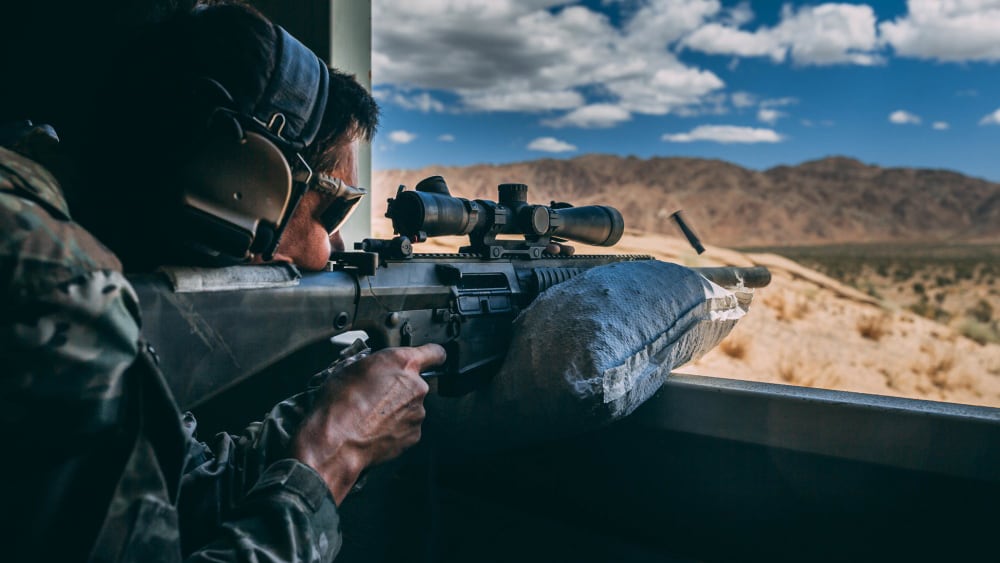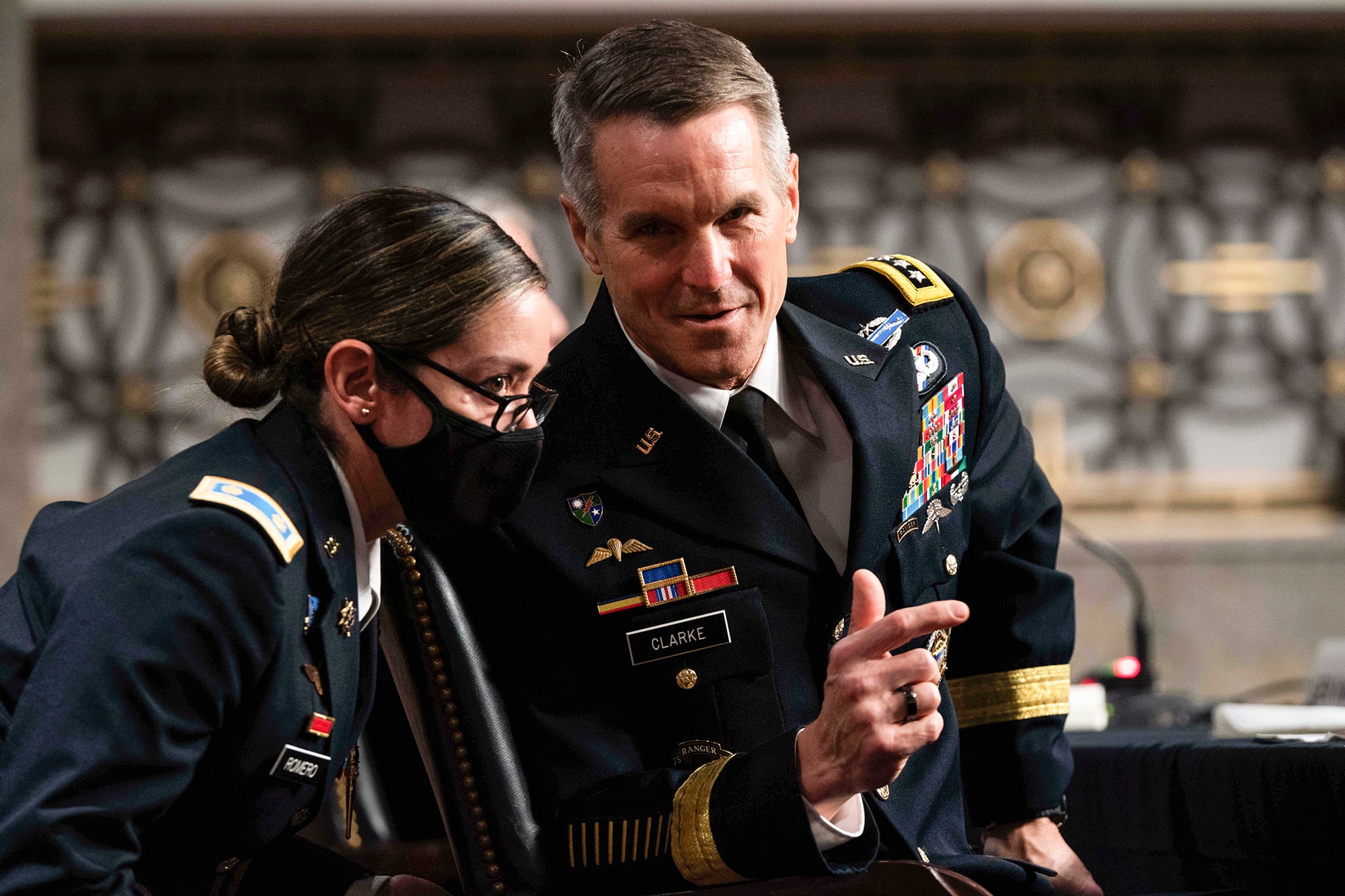A sea change is coming to special operations.
After 20 years of relentless combat operations, organizations are taking a hard look at their mission sets, who is in the formations and how the job treats them.
Special Operations Command has openly discussed its imminent shift from counter-terror to near-peer competition in recent years, but at the same time, another major shift is underway in the military writ large: a new focus on attracting and retaining women in every career field, a renewed focus on preventing and responding to sexual assault and sexual harassment, and the first department-wide efforts to crack down on extremism.
“I present our update to the American people with humility,” Rear Adm. Hugh Howard, the head of Naval Special Warfare Command, told the Senate Armed Services Committee on Wednesday. “Humility, sharpened in combat losses, mission failures and imperfection. Humility that drives our sense of urgency to learn, to evolve, to come back stronger and even more committed to the missions our nation asks of us.”
Howard’s testimony came the same day his command unveiled a new plan for structuring SEAL units, decreasing the number of platoons and making those remaining larger, as well as an intensive new screening process designed to select for higher-quality leaders.
“We are implementing innovative approaches to directly reach candidates that might not think of joining our team, and how our candidates solve their first problems in the Navy, alongside a diverse cohort to authentically build mutual understanding, empathy, and respect,” Howard said Wednesday.
The SEAL community has been under an intense spotlight in recent years, as the war-crimes trial of retired Chief Special Warfare Operation Eddie Gallagher dominated headlines, alongside scandals involving drugs and sexual assault.
Those incidents, as well as others involving Army Green Berets and Marine Raiders, prompted an internal SOCOM review that found leadership lacking in an organization obsessed with combat deployments above everything else, at times hamstrung by its own hubris.
RELATED

Each of the services’ special operations commands is taking some time to assess the state of things 20 years into the Global War on Terror, as their troops prepare for a full withdrawal from Afghanistan in September.
There are a lot of lessons learned, especially about how to select special operators and how to keep them both mentally and physically healthy.
“And we’re looking at this from a tangential view, the entire career of a special operator, from initial baselining in our assessment and selection programs, also from a neurocognitive perspective, through 20 years-plus in service in special operations,” Lt. Gen. Fran Beaudette, head of Army Special Operations Command, told lawmakers.
That includes not only tracking how troops fare in a special operations career overall, but how their experiences change them. Researchers and military leadership suspect that decades of training for combat, not to mention combat itself, can cause small injuries that pile up over time and change behavior.
RELATED

Preservation of the Force and Family, a SOCOM program that specifically focuses on those effects of serving.
“The next ridge line to us looks like more research, more partnership with academia for comprehensive brain health,” Beaudette said.
At the same time, five years after the services lifted bans on women serving in some of the most direct-combat jobs, USASOC is looking at how to bring more of them in.
“So to that end, we instituted a ‘Women in SOF ‘survey,” he said. “We had over 5000 respondents recently, over 1000 of whom were women. We are learning a tremendous amount about what we can do better to support them in their efforts in our formation. But in addition, in something that was particularly important to me, over 70 perfect of the total number of respondents would recommend a career in special operations for their daughters. So where we can remove barriers as they exist, where we can present what life in our formations looks like ― we want you. You have an opportunity to serve and to flourish in our formations.”
One woman to date has earned a Special Forces tab, while a small handful have served in the 75th Ranger Regiment. Most of the women in Army special operations either serve in Special Forces support roles or as part of civil affairs or psychological operations, units that sit under the USASOC umbrella.
Attracting more women to those jobs will include tackling some of the issues the military in general looks at when it comes to recruiting and retaining women, including co-locating dual-military couples, time to physically recover after child birth and the ability to continue to advance in a career while balancing parenting, often with a spouse who is also serving.
“We’ve spent a lot of the last six months listening very, very closely to our women’s special operators, and we take a tremendous amount of pride in the contributions that they’ve made for the nation,” Beaudette said.
Those efforts are part of a larger SOCOM-wide plan to increase diversity and inclusion, in line with messaging from the services and the Defense Department.
RELATED

These initiatives come as the SOF community is recalibrating itself in general, hinting that perhaps its next act won’t be dominated by back-to-back deployments to the detriment of everything else.
Once seen as a specialized kind of support to conventional forces, special operators were given countless responsibilities and resources throughout the Global War on Terror.
“Over the last 20 years, in many ways, we have become a supported force,” Lt. Gen. Jim Slife, head of Air Force Special Operations Command, told lawmakers. “But I think as we look towards the future, much of our value proposition will be as a supporting force to the broader joint force.”
Meghann Myers is the Pentagon bureau chief at Military Times. She covers operations, policy, personnel, leadership and other issues affecting service members.





